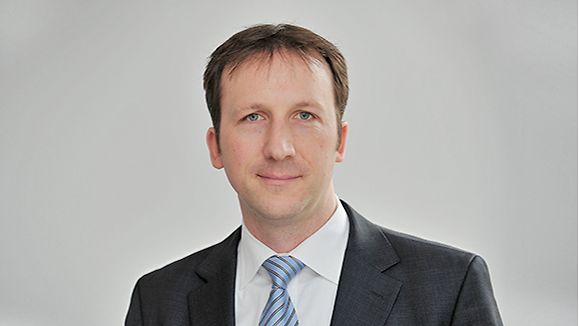Electronics & Microtechnology
Machinery and Equipment News November 2022
Innovative mobility solutions are helping Germany's M&E sector cement its reputation as a global smart mobility leader.
Nov 11, 2022
- Electrical and digital sector bucks trend with double digit growth
- Car density in Germany at record high
- German Aerospace Center develops world’s “most environmentally friendly” road vehicle
- Hamburg to be Europe’s first testing ground for driverless trucks
- Satellite start-up seeks to mix up new space market
Electrical and digital sector bucks trend with double digit growth
Germany’s electrical and digital sector recorded year-on-year growth of 13.4 percent in August, with exceptionally good sales figures running counter to the previous negative trend. Sales books filled up despite the ongoing challenges posed by the energy crisis in Europe, high inflation, and supply chain difficulties. Nominal turnover totaled EUR 19.1 billion in August (a 22.5 percent year-on-year increase). Overseas orders increased by 16.5 percent, with domestic turnover also up by 9.2 percent. Customers within the Eurozone increased their orders by more than 20 percent, with non-EU country orders almost 15 percent higher than in the previous year. Companies in the German electrical and digital industry downgraded both their production and employment plans in subsequent months, but remain in positive territory with export expectations also up since September. The unexpected positive upturn is being driven in part by continued high demand for semiconductors and other electronic components as well as the household appliance, automation, medical technology, and energy technology sectors.
Car density in Germany at record high
The number of cars on the road in Germany is increasing – despite the promotion of alternative modes of transportation as part of the country’s planned mobility transition. According to the Federal Statistics Office, car density levels have risen continuously over the past decade, with 580 passenger cars per 1,000 inhabitants in 2021 – a record high. The total number of cars registered in Germany also rose to 48.5 million at the start of the year. Electric passenger vehicle registrations rose to 13.6 percent for the period January to July 2022, with electric vehicles enjoying overall share of just 1.3 percent on cars on the road. Although the shift to electric mobility has an important role to play in meeting low-emission mobility goals, the number of cars on the road needs to fall in order to ease congestion and create room for alternative modes of mobility and road use.
German Aerospace Center develops world’s “most environmentally friendly” road vehicle
The German Aerospace Center (DLR) and engineering company HWA have developed and successfully road tested a vehicle with almost no emissions. The “Zero Emission Drive Unit – Generation 1” (ZEDU-1) electric vehicle almost eliminates the particulate matter and microplastic emissions caused by tyre and brake abrasion. The project prototype, which received EUR 6 million in public funding from the state of Baden-Württemberg, was presented to the public in Stuttgart in September. “I am pleased that the research project 'Zero Emission Drive Unit - Generation 1' has successfully developed a prototype that addresses particulate emissions as the most important causes of mobility-related environmental pollution and thus lays the foundation for near zero emission mobility on the road in the future” said Baden-Württemberg Minister of Economic Affairs Nicole Hoffmeister-Kraut. The groundbreaking project eliminates the classic disc brake, with the new brake removed from the wheel and integrated into a closed electric motor gearbox unit making it possible to recover the braking energy almost entirely - as well as eliminating brake abrasion. According to the DLR, measurements also show that tire wear can be completely avoided at speeds of up to 50 km per hour and reduced by between 70 and 80 percent at higher speeds. The technology will be developed futher with industry before the start of serial production.
Hamburg to be Europe’s first testing ground for driverless trucks
The port city of Hamburg is set to become Europe’s first testing ground for driverless trucks in 2025 as part of the MODI project being conducted by the Ministry for Transport and Mobility Transition in partnership with New Mobility Solutions GmbH and other transport operators. The test track for automated and connected driving will be used based on the ITS-G5 technology that was tested during the ITS World Congress in 2021. This will be networked with the port’s digital infrastructure. Two forty-ton trucks will be used to carry out the research. Funding in the region of EUR 23 million has been set aside for the project within the framework of the European Union's Horizon Europe program.
Satellite start-up seeks to mix up new space market
New space start-up Reflex Aerospace is seeking to make an impression in the burgeoning new space market with claims that it is the only manufacturer in the world able to build tailor-made microsatellites in less than 12 months. The company, which plans to put two satellites into orbit in 2023 for demonstration purposes, claims that it will create its satellites from just 100 components instead of thousands using 3D printing technology. Potential customers include telecom companies seeking to create alternatives to submarine cable connections via satellite and automotive manufacturers requiring support for autonomous driving. In other news Reflex Aerospace and space-tech company HPS signed a letter of intent to prevent space debris in September. The agreement will see Reflex Aerospace remove all of its satellites from orbit at the end of their operational life, with HPS fitting Reflex spacecraft with the ADEO sail deorbit system in order to put the European Commission’s “Green Deal,” the European Space Agency’s “Zero Debris Initiative” and the US “National Orbital Debris Implementation Plan” into practice.

